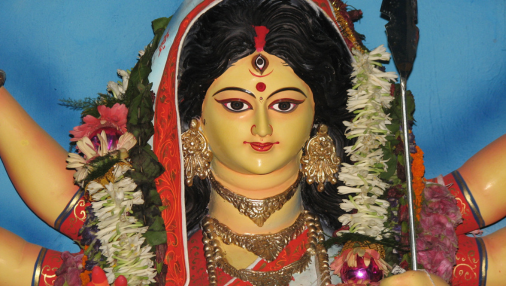Today is the Last Day of Navratri – A Time of Devotion, Reflection, and Celebration
Navratri, one of the most significant Hindu festivals, is celebrated with immense devotion, energy, and cultural enthusiasm across India and among Hindu communities worldwide. This nine-night festival, dedicated to Goddess Durga and her nine divine forms, symbolizes the victory of good over evil and the triumph of light over darkness. Today marks the last day of Navratri, which holds special significance, as devotees conclude their fasts, offer prayers, and seek the blessings of the divine mother. The last day is often observed as Mahanavami or Durga Navami, and in some regions, it coincides with Dussehra (Vijayadashami), the festival of victory.
Spiritual Importance of the Last Day of Navratri
The last day of Navratri is not just about rituals; it represents the culmination of nine days of devotion, discipline, and spiritual practice. Throughout these days, devotees worship each form of Goddess Durga—Shailaputri, Brahmacharini, Chandraghanta, Kushmanda, Skandamata, Katyayani, Kaalratri, Mahagauri, and Siddhidatri. Each day signifies an inner journey, where worshippers focus on purity, strength, courage, wisdom, and self-realization.
On the final day, Goddess Siddhidatri, the ninth form of Durga, is worshipped. She is believed to bless her devotees with supernatural powers (siddhis) and ultimate knowledge. The last day is therefore seen as the attainment of divine energy and spiritual completeness after days of prayers and penance.
Rituals and Traditions of the Final Day
- Kanya Pujan (Kanjak Puja) – Young girls, symbolizing the nine forms of Goddess Durga, are worshipped and offered food like puri, chana, and halwa.
- Havan (Sacred Fire Ritual) – A havan is performed where offerings are made to the holy fire, seeking purification and divine blessings.
- Breaking the Fast – Devotees observing strict fasts break them with prasad (blessed food) after puja.
- Processions and Cultural Events – Idols of Goddess Durga are immersed, accompanied by Garba, Dandiya, and Ramleela performances.
Regional Significance of the Last Day
In North India: Celebrated as Ram Navami or Mahanavami, followed by Dussehra with burning of Ravana effigies.
In West Bengal: Known as Maha Navami during Durga Puja; idols are immersed on the next day.
In South India: Observed as Ayudha Puja, where tools, instruments, and vehicles are worshipped.
In Gujarat: Marked by grand Garba and Dandiya dances, symbolizing devotion and festivity.
Cultural and Social Impact
Navratri is more than a religious event; it is a cultural festival that unites families, friends, and communities. The last day is vibrant, filled with prayers, feasts, dances, and celebrations. It emphasizes values like discipline, patience, respect for women, and the importance of defeating negativity in life. Just as Goddess Durga defeated Mahishasura, devotees are reminded to conquer their own inner demons—ego, anger, greed, and ignorance.
Symbolism of the Last Day
The conclusion of Navratri is symbolic of renewal and new beginnings. As Goddess Durga returns to her heavenly abode, devotees are encouraged to carry forward her blessings, strength, and wisdom. The last day teaches us that with faith and perseverance, we can overcome challenges and emerge victorious.
The Universal Message
The final day of Navratri carries a universal message of positivity, hope, and triumph of truth. It reminds us that no matter how strong darkness may seem, light will always prevail. This day inspires individuals to embrace spiritual growth, divine power, and gratitude for life’s blessings.
Conclusion
As we celebrate the last day of Navratri today, it is a moment of both devotion and celebration. While rituals, fasts, and prayers conclude, the spiritual energy and cultural vibrance inspire people for the days to come. Whether through worship, dance, music, or community gatherings, this day strengthens the bond between humans and the divine. The last day of Navratri is therefore not an end, but a new beginning—reminding us that with the blessings of Goddess Durga, we can lead lives filled with courage, wisdom, and righteousness.

